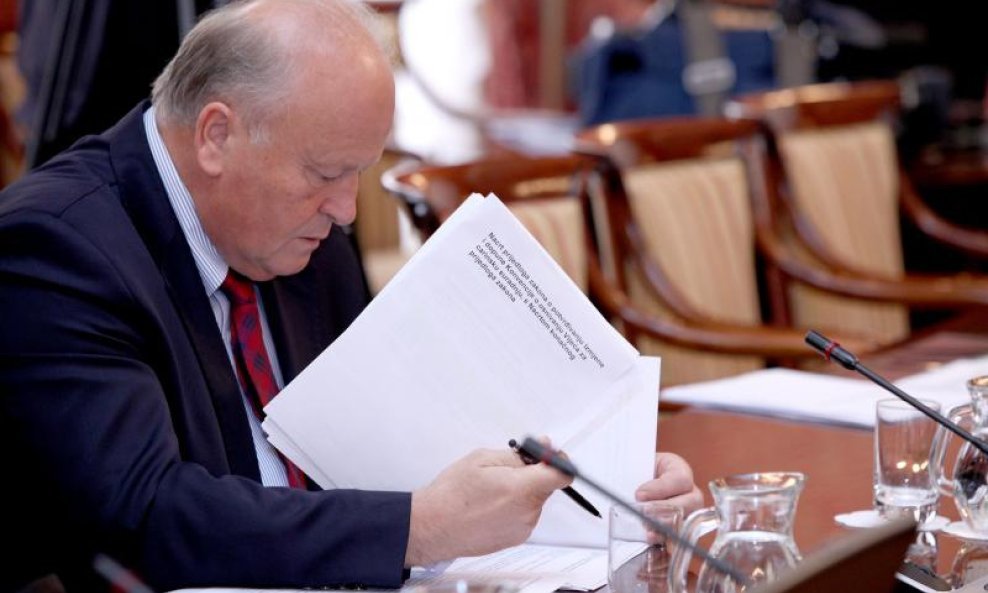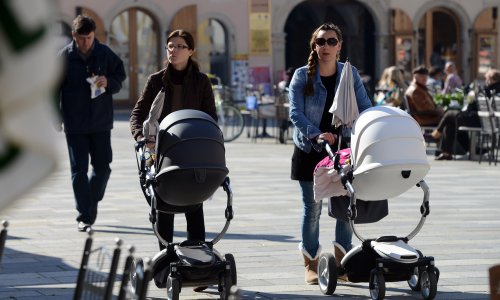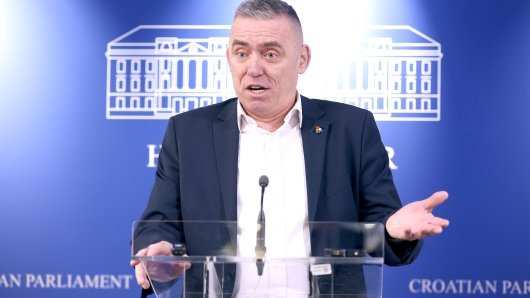At its session on Monday, the Croatian government presented a draft state budget for 2013 with the planned revenues amounting to HRK 113.7 billion, up 4.3 per cent on this year's original budget, and expenditures totaling HRK 124.5 billion, up 4.8 per cent.
Last week, the government moved a draft 2012 budget revision increasing revenues by 3% (HRK 3.3 billion) and expenditures by 3.5% (HRK 4.2 billion).
The 2013 budget deficit would increase by nearly HRK 1 billion to HRK 10.9 billion or 3.1 percent of gross domestic product.
The government predicts that the deficit of the extra-budgetary funds in 2013 will account for 0.7% of GDP, as against 0.2% this year, mainly because those beneficiaries, notably Croatian Motorways and Croatian Waters, will continue to invest, while local government units are expected to retain balanced budgets in 2013.
The general government deficit would amount to 3.8% of GDP.
The 2013 draft budget with projections for 2014 and 2015 was presented by Finance Minister Slavko Linic.
Next year's budget envisages GDP growth of 1.8%, 3% in 2014 and 3.5% in 2015.
The government predicts that next year's inflation will remain at 3.5% because of this year's increase in fuel prices, dropping to a little over 2% in 2014 and 2015.
The government's policy focuses on development and fiscal consolidation, said Linic.
The policy of austerity alone has failed because it is necessary to also fight for economic growth, he said, adding that "the battle for a stronger GDP, a stronger economy, is the backbone which can justify further fiscal consolidation, further austerity."
The growth of budgetary revenues in 2013 is the result of expectations of economic recovery, better collection of tax revenues and tax changes, said Linic.
As of 2013, VAT in the hospitality sector will be slashed from 25 to 10% and the zero VAT rate on some products will be replaced with a 5% rate. Next year's budget envisages HRK 43.4 billion in VAT revenue, 7.1% more than in this year's original budget. Excise taxes are expected to grow 5.8% to HRK 12.15 billion, primarily due to alignment with the EU.
The government expects HRK 7.35 billion from profit tax, 4.1% less than in this year's original budget, which Linic said was the result of rescinding reinvested profit tax.
The government expects HRK 1.1 billion in revenue from the tax on international trade and transactions, 33.6% less than in this year's original budget, due to the rescinding of dues on EU imports.
The government expects HRK 38.1 billion from contributions, 3% more than in this year's original budget.
Expenditures are set at HRK 124.5 billion, HRK 5.6 billion more than in this year's original budget and HRK 3.2 billion more than in the revised 2012 budget. Linic said this was also due to more than HRK 2 billion that needs to be paid as interest, including the debt of the shipbuilding sector, HRK 1.7 billion to be paid into the EU budget, and HRK 900 million for the structuring of the shipbuilding sector.
The 2013 budget also includes the Croatian Compulsory Oil Stocks Agency (HANDA), an expense of HRK 750 million, HRK 368 million more for pensions because of indexation, HRK 150 million more for subventions to the Croatian Bank for Reconstruction and Development, HRK 41 million more for the active employment policy, and HRK 227 million more to upgrade the rail sector.
To make room for those increases, it is necessary to cut expenditures, notably for employees, including the health care sector, by HRK 2.3 billion. Expenditures for employees in the 2013 budget are planned at HRK 20.7 billion.
Material expenses are planned at HRK 8.6 billion, HRK 192 million less than in this year's original budget.
At today's government session, Linic warned about the impact of the public debt and interest on the deficit.
The public debt in 2013 will rise to 55% of GDP and is predicted to rise to 56% in 2014.
A significant turnaround is expected in 2015 because of the public debt's reduced GDP share, which will mostly depend on privatisation and concessions, said Linic.


































